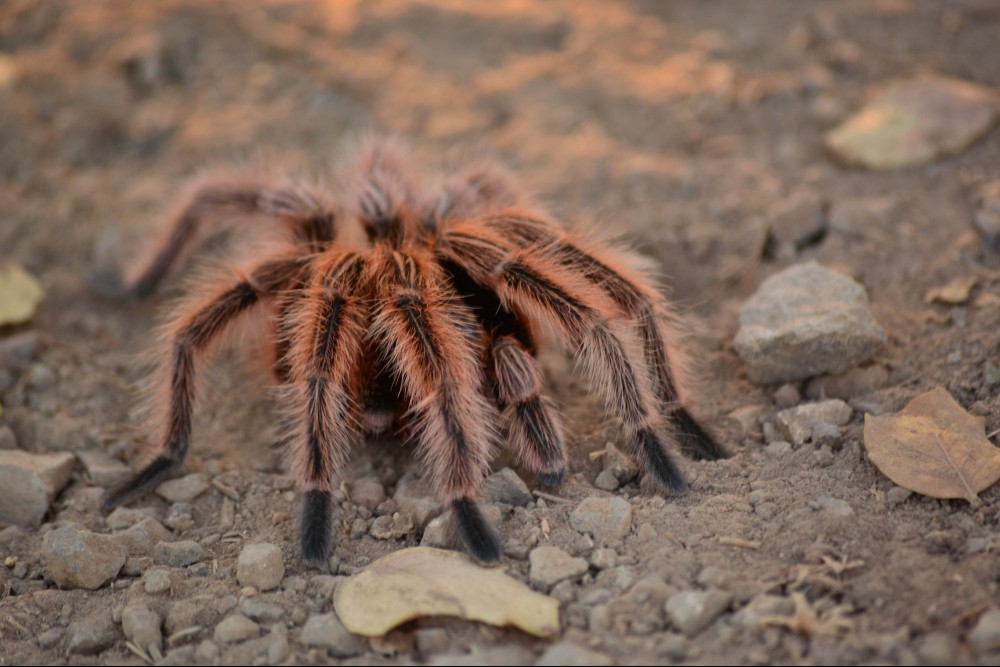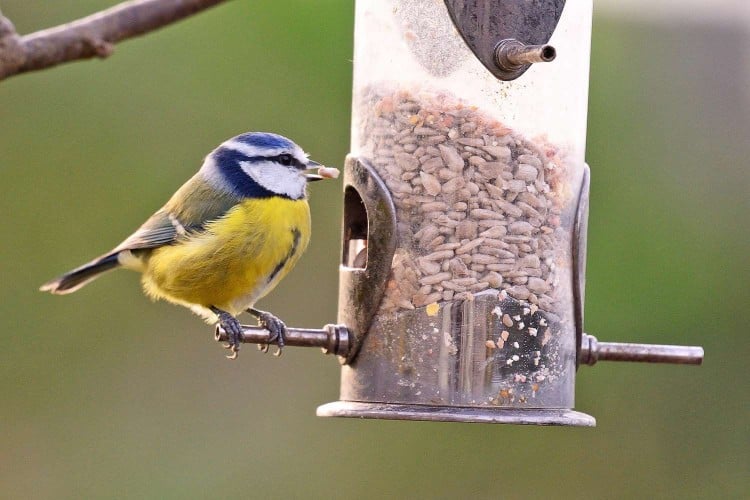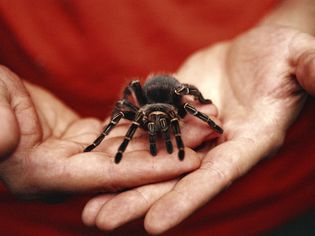Insects and spiders can be fascinating to watch. They are extremely quiet, clean pets that do not need much room to live. Insects and spiders also require little attention or socialization (in fact, they generally do best with little interaction). However, before deciding on an insect or spider as a pet, look at your reasons for wanting this kind of pet. If you are just looking for a pet that is unique or "cool," or for a pet to impress or shock your friends, think again. Insects and spiders are unique and while they are not overly demanding in their care, you must make the same level of commitment to caring for them as any other pet. Too many owners get pets on impulse and once the novelty wears off, they tire of caring for them.
Choosing the Right Pet
If you are just starting out with an insect or spider, you are best off choosing a species that is neither delicate nor dangerous. Perhaps the ultimate beginner insect would be the hissing cockroach - they are easy to care for and as a rule, are pretty docile and lack serious weapons (not venomous, don't sting, etc.). Some tarantulas are also acceptable for beginners, such as the Chilean rose, Mexican Redleg, or Costa Rican Zebra. These species are not terribly venomous and are fairly docile compared to some other tarantulas (their venom is akin to bee venom, perhaps, although the venom can provoke an anaphylactic reaction). Stick and leaf insects and mantids are a little more fragile, although they are quite easy to maintain and are quite popular in the UK. Keep in mind that if you have children, most insect pets fall into the "look but don't touch" category, mostly because they are too fragile for all but the most gentle handling (clearly, venomous creatures are also inappropriate for children to handle). Hissing cockroaches are a good exception to this rule since they are large enough to handle and are pretty sturdy and docile. The traditional ant farm is often interesting for kids too, although kids may lose interest since they cannot interact with the ants, (and an escaped ant colony is a risk!).

Before Deciding on an Insect or Spider
- Ensure legality: Check with local, county and state government agencies regarding legality. There may be regulations in some areas.
- Consider the upkeep: Find out about the care (housing, environment, diet) needed for the pet you are considering. While many insects and spider pets are inexpensive to obtain, providing the right environment can be tricky for some species, especially for the more exotic tarantulas. As a general rule, you want to mimic their natural environment as much as possible. Find out what is needed for food and consider if you can provide the proper diet. For example, hissing cockroaches are easy to feed, whereas stick insects need fresh vegetation and tarantulas need prey insects. Will you be able to provide and be comfortable feeding the necessary items?
- Check into the life span: Most insect pets are pretty short-lived, but some tarantulas can live for 20-30 years (and females are much longer lived than males).
- Find out how to properly handle the pet: While this obvious for venomous animals, it is very important for all insects and arachnids as they can be injured by improper handling.
- Ensure safety: Find out, from a reputable source, the exact species of insect or spider and if it is venomous. Keep in mind that even a mildly venomous tarantula can cause a great deal of pain, and tarantulas have special hairs on their abdomen which they shed if threatened and which can be extremely irritating (and dangerous if they get in the eyes). If you are getting a tarantula, make sure you find out how best to avoid bites, but also how to deal with bites if they should happen, and what to do if exposed to their irritating hairs.
Further Reading
- Tarantulas
- Stick Insects
- Hissing Cockroach
- Praying Mantids
Related Article

A New Study Found That Affection From Dogs Could Ease Physical Pain in Humans
Photo: monkeybusinessimages / Getty Ask any dog parent if time with their pup can cu

Can Your Dog Be a Therapy Dog? See If Your Pup's Got the Right Stuff
Photo: Adrienne Elliot / 500px / Getty Therapy dogs provide comfort to those in thei

Salmonella Outbreak in Songbirds: How to Protect Yourself, Your Pets, and Your Birds
Photo: Tom Meaker / EyeEm / Getty The U.S Centers for Disease Control (CDC) on Thurs

What You Should Know If Your Dog Needs to Wear a Cone
It's inevitable. Your dog will likely need to wear an Elizabethan collar—also called the

Parvo in Dogs: How To Treat and Prevent a Deadly Virus
Photo: Evrymmnt / Getty Parvo in dogs, officially known as canine parvovirus, is a d

How to Moisturize Your Dog's Dry, Flaky Skin to Ease Itchiness and Redness
Just like us humans, dogs can sometimes suffer from the seasonal perils of dry skin. This usua

How to Prevent Cracked Dog Paws and Protect Your Pup's Skin from Dryness
As a dog owner, the pitter patter of excited toes across the floor after a long day is likely
About Pet Universe
We are a premier digital platform committed to delivering high-quality content to our readers. Our mission is to provide accurate, reliable, and engaging information that adds value to our audience's daily lives.
Our team consists of experienced content creators and subject matter experts who uphold the highest standards of professionalism. In an era of information overload, we curate content with care, ensuring our users receive only the most relevant and trustworthy information.
Beyond just reporting facts, we focus on depth and context. Through expert analysis, comprehensive research, and clear presentation, we help our audience gain meaningful insights and make informed decisions.
We take pride in being a trusted information source for our growing community of readers. Our user-first approach means we continuously adapt to provide content that meets our audience's evolving needs and interests.
Innovation and excellence drive everything we do. We're committed to improving our platform and services to deliver the best possible experience for our users.



Comments on " Insects and Spiders Pets Guide for Beginners" :